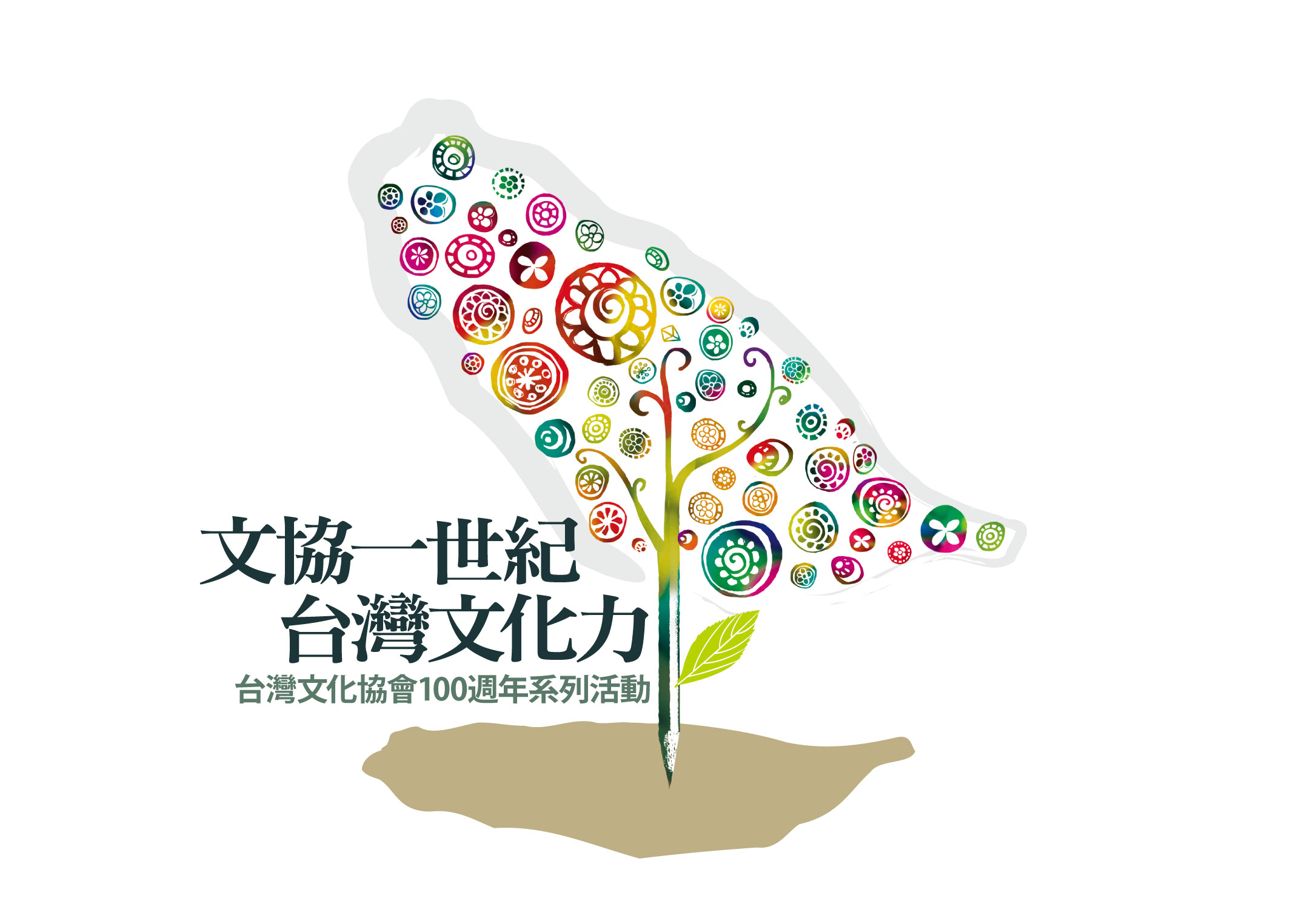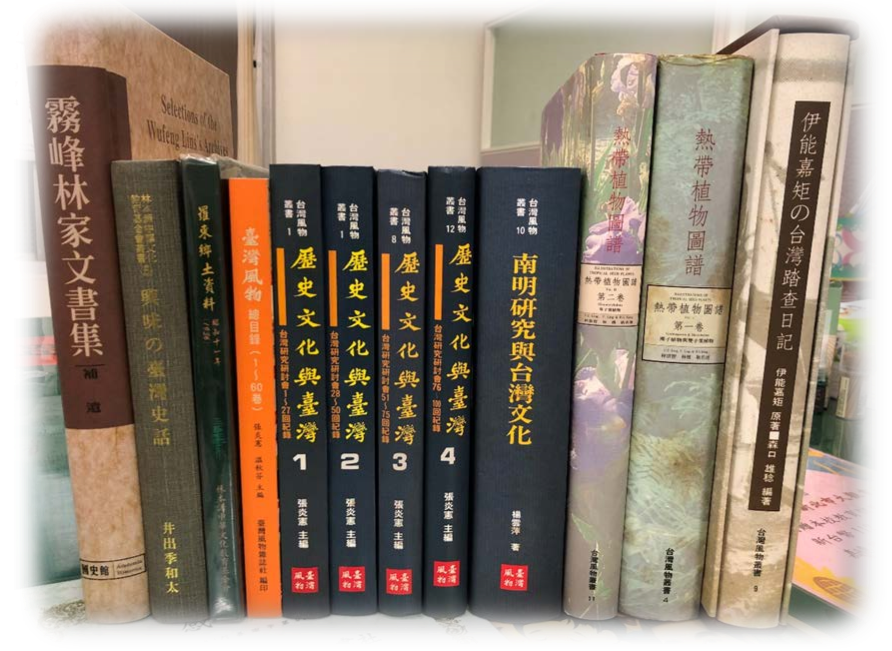 尋求李萬居思想的重新定位:紀念李萬居先生一百週年冥誕
尋求李萬居思想的重新定位:紀念李萬居先生一百週年冥誕
Seeking to reevaluate the thought of Lee Wan-chu:
The hundredth anniversary birth
陳儀深/Chen Yi-Shen
(中研院近史所副研究員)
(Associate Research Fellow, Institute of Modern History, Academia Sinica)
2001-08-13
 Lee Wan-chu
Lee Wan-chu
二○○一年適逢民主前輩李萬居百歲冥誕,這位出身貧寒的書生政治家在世時雖縱橫政壇,身後相關的思想與生平之研究卻頗為稀少;「魯莽書生」、「半山的異端」是其代表性標籤,然不足以道盡他風起雲湧的一生:他「擺著國民黨給的官位不做,選擇在野從政」;「忍辱負重在陳儀底下擔任二二八『處理委員會』常務委員,只希望能為民眾多爭取一些折衝協調的空間」。李萬居辦報、籌組新政黨、投身地方政治,一生信奉與追隨自由民主思想,雖然最後落得兩袖清風,卻留與後人豐富的民主遺產。本週「台灣歷史之窗」特別邀請中研院近史所副研究員陳儀深執筆,談談這位台灣民主前輩的生平事蹟與思想。
2001 happens to be the one hundredth anniversary of the birth of Lee Wan-chu, an early proponent of democracy. This bookish politician, born into a poor family, moved with great ease in political circles, but research into his ideas and life since his death has been fairly meager. “A reckless man of letters”, “the half-mainlander heretic” were the labels used to describe him, but this is not enough to fully describe a busy life in an interesting era: he “refused the official position offered him by the KMT, and chose to pursue politics from the outside”; “he suffered the insults of the 228 ‘cleanup committee’ members under Chen Yi, hoping only to be able win some negotiating space for the ordinary people.” Lee Wan-chu ran a newspaper, organized a new political party, threw himself into local politics, and had a lifelong belief in and pursuit of free and democratic thought. Although he ended up penniless, he left his descendents a rich legacy of democracy. This week’s Window on Taiwan is written by Chen Yi-Shen associate research fellow at Academia Sinica’s Institute of Modern History, and he talks about the life and ideas of this early proponent of democracy in Taiwan.
李萬居(1901-1966)是台灣雲林人,生長於日治時代窮苦的鄉下家庭,曾去中國上海、法國巴黎接受高等教育,然後在戰後二十年的台灣政壇叱吒風雲。李萬居逝世三十五年以來,研究其生平思想的文字可謂稀少,代表性的標籤是所謂「魯莽書生」或「半山的異端」,但個人認為皆不足以表現李萬居生平思想的重要特色。
Lee Wan-chu (1901-1966) was born in Yunlin, Taiwan. He grew up during the era of Japanese occupation, in a poor, rural family. He received his higher education in Shanghai and Paris, and then, for twenty years after the Second World War, he was all-powerful in Taiwanese politics. In the 35 years since Lee Wan-chu’s death, little research has been done or written about his lifelong thought, and he has been labeled a “reckless man of letters” and “a half-mainlander heretic,” yet I think that these cannot fully represent the important characteristics of his lifelong thinking.
魯莽書生不魯莽:與國民黨政權做長久周旋的政治家
所謂「魯莽書生」是鍾楊瑞先(李萬居的內弟鍾國元之妻)於1979年在《中外雜誌》連載將近一年的文章標題,鍾楊女士的解釋是:李萬居擔任省議員時仍具有讀書人的氣質,發言大膽、有些魯莽,有時甚至不顧一切,所以「當時記者先生們」給他取了這個綽號。然而李萬居畢竟是不折不扣的政治人物,從1946年當選省參議會議員、制憲國大代表、臨時省議會議員、並連任三屆省議員,直到去世為止,其間還主辦《公論報》批評時政,參與組黨運動,在艱難的環境下與國民黨政權作長久的周旋,都不是書生、更不是魯莽之徒所能達成的。
The “reckless man of words” was not reckless:
a politician who socialized with the KMT regime for many years
”The Reckless Man of Words” was the title of an essay published in installments over almost a year in 1979 in “Chung Wai Magazine” by Chung Yang Jui-hsien, wife of Lee’s wife’s younger brother, Chung Kuo-yuan. Ms Chung Yang’s interpretation was: when Lee Wan-chu was serving as a member of the Taiwan Provincial Assembly, he still possessed the temperament of an intellectual, he expressed himself boldly, was rather reckless, and regardless of all consequences, so “the newspaper gentlemen of the time” gave him this nickname. In the final analysis, however, Lee Wan-chu was a political figure one hundred percent, starting in 1946 when he was voted member of the Taiwan Provincial Assembly, through his positions as a National Assembly Representative involved in writing the Constitution, Provisional Provincial Assembly Member, and his three terms as a member of the Provincial Assembly, right up until his death. During this time, he also ran the Kung Lun Pau, a newspaper which criticized political affairs, he took part in the movement to form a new party, and in a very difficult environment, he socialized with the KMT regime over a long period of time, all of which are not things that a man of letters or a reckless person could have achieved.
 Lee Wan-chu at work
Lee Wan-chu at work
堅持自由民主的「半山」
其次,「半山的異端」是由卜幼夫、楊錦麟等撰述人所強調的特點。所謂半山是指半個唐山人,由於日治時代有一批台灣人居留中國並且在國民政府體制內任職,戰後隨國民黨政權回台,從而在政治上成為有一定影響力的「特殊族群」,例如游彌堅、劉啟光、黃朝琴、李萬居、王民寧、連震東、丘念台等。二二八事件後,本省、外省的族群裂痕加深,對許多本省人而言,「半山」實在是貶抑的名詞;半山政治人物並不全是國民黨人,李萬居即具有青年黨的背景,並不那麼受國民黨當局信任,加上他是非分明、堅持自由民主的個性,自然走上反抗者的道路,所以稱他為半山的異端還算適當。不過半山本來就不全是「壞人」,例如他們在二二八事件處理委員會中扮演的角色,大致都站在被壓迫的本省人的立場進行交涉,所以所謂「半山的異端」也不足以適當凸顯李萬居思想的特色。
The “half-mainlander” who insisted on freedom and democracy
Next, the “half-mainlander heretic” was the distinguishing feature emphasized by writers such as Pu You-fu and Yang Chin-lin. The so-called “half-mainlander” label comes from the fact that during the period of Japanese rule, some Taiwanese people took up residence in China, and held positions in the Nationalist government. After the war, they followed the KMT regime to Taiwan, and became a politically-influential “special ethnic group,” including people such as You Mi-chian, Liu Chi-kuang, Huan Chao-chin, Lee Wan-chu, Wang Min-ning, Lien Chen-tung [father of Lien Chan] and Chiu Nien-tai. After the 228 Incident, the ethnic split between mainlanders and native Taiwanese become deepened, and for many native Taiwanese, so the name “half-mainlander” was pretty pejorative; half-mainlander political figures were not all KMT men, and even though Lee Wan-chu had a party background in his youth, he wasn’t really trusted by the KMT authorities, and on top of this, his personality was one which unequivocally supported freedom and democracy, and as a matter of course chose to go against the tide, and so to call him a “half-mainlander heretic” was quite appropriate. However, not all “half-mainlanders” were bad, for example, nearly all of the “half-mainlanders” who participated in the 228 “cleanup committee” took the side of the oppressed native Taiwanese, and so the label of “half-mainlander heretic” doesn’t completely describe the distinguishing characteristics of Lee Wan-chu’s thought.
做政府與人民間的橋樑:投身地方政治與辦報
在台灣戰後二十年內,李萬居是政壇上反對運動的指標人物,為黨國體制下的「黨外」政治人物擦亮金字招牌。他之所以能連選連任省議員,動輒四、五萬票以上,除了必須走遍雲林大小鄉鎮,為鄉親爭取堤防、排水溝等建設,更因他在省議會的持續發言擲地有聲,涉及的層次包括自由人權、中央民代改選、政黨政治乃至反攻大陸的可能性等議題,儼然是國會議員的氣勢。當然,與省議員身份相互為用的是《公論報》社長,透過這份報紙抒展他的「理想和興趣」,表現出不為威屈、不為利誘的民間報業風範。雖然有人批評他不諳業務經營之道,然而《公論報》的歷史地位在於它的言論風格,而不是報份多寡,何況當局透過阻止刊登廣告、綁架或逮捕報社同仁的方式打壓《公論報》也都是事實。總之《公論報》已成為李萬居政治生命的一部分,當局亦深知此理,所以在1960年前後李萬居參加領導新黨運動之際,藉著購買增資股權以及司法手段,逼迫李萬居交出經營權。李萬居的長子李南輝回憶那一段經過,說到當時國民黨曾擬以五十萬美金買下《公論報》,並願給李萬居「董事長」的頭銜,報社同仁覺得大勢已去,就慫恿李南輝去勸乃父接受,結果卻「被父親罵了一頓,父親說他回來台灣有一個心願,希望做政府和人民的橋樑,替老百姓講話,為了這個理想,報社寧願關掉,也不拿別人的錢。」
Acting as a bridge between government and people:
throwing himself into local politics and running a newspaper
In Taiwan during the twenty years that followed the war, Lee Wan-chu was a figure for the political opposition movement, and he held up a shining light for the “tang-wai” political figures under the KMT-state system. He was able to get 40,000 or 50,000 votes each time he was re-elected as a member of the Taiwan Provincial Assembly, and apart from having to travel all over the towns and villages of Yunlin to build embankments and irrigation schemes for his fellow countrymen, his sustained speeches in the Provincial Assembly touching on every level, including freedom and human rights, the re-election of central government-level people’s representatives, party politics and even the possibility of launching a counterattack on mainland China, had the solemn air of a parliamentarian. Of course, at the same time as he was member of the Provincial Assembly, he was also the president of the Kung Lun Pao, and through this newspaper he was able to release and develop his “ideals and interests,” and setting a model for a non-government-run paper that did not submit to authoritarian might, and was not run for profit or gain. Although there were those who criticized him for not knowing anything about running a business, the Kung Lun Pao’s historical position is determined by its style of political expression, and not by the number of copies, to say nothing of the ban by the authorities on the paper carrying advertising, and the use of kidnap and arrest of workers at the paper to put pressure on the Kung Lun Pao. In conclusion, the Kung Lun Pao became a part of Lee Wan-chu’s political life, and the authorities increasingly came to realize this. Therefore, before 1960, when Lee Wan-chu was engaged in leading activities for a new party, the authorities bought the stock rights and used various judicial measures to force him to hand over the running of the paper to them. Lee’s eldest son, Lee Nan-hui, remembering this course of events, said that the KMT planned to buy the Kung Lun Pao with US$500,000, and were even willing to give Lee Wan-chu the title of “chairman of the board.” The colleagues at the newspaper felt that the game was as good as lost, and encouraged Lee Nan-hui to persuade his father to accept it. Lee Nan-hui was “told off by [his] father, and [his] father said that he had come back to Taiwan with a dream, he hoped to act as a bridge between the government and the people, to speak for the ordinary people, and for this ideal he would rather close the paper down than accept someone else’s money.”
 Lee Wan-chu with his family
Lee Wan-chu with his family
李萬居實踐自由民主的方法,是辦報、議政、組黨,其中最有力量的後盾,應是雲林鄉親長久的支持,使他連選連任(當時民選的最高級民代)省議員;當1960年當局為遏阻新黨運動泡製雷震叛亂案的時候,不敢直接逮捕李萬居,很可能就是忌憚他背後的民意基礎。
Lee Wan-chu put his free and democratic methods into practice, he ran a newspaper, engaged in politics, formed a party, and in all of this, his most powerful backing was his long-term support from his fellow countrymen in Yunlin, who repeatedly elected him to office as a member of the Provincial Assembly (at the time, the highest level of elected people’s representative). In 1960, in order to hold in check the activities of new parties reacting to the Lei Chen insurrection case, the authorities did not dare directly arrest Lee Wan-chu, very probably fearing the foundation of popular support which he had.
民主英雄的民族主義立場之剖析
作為民主運動的先驅,乃至「民主英雄」,李萬居是當之無愧。至於他的民族認同,或民族主義思想立場如何,則是一個亟待釐清的問題。李萬居年輕時對日本統治有所不滿,留學法國之後到南京任職,中日戰爭期間一直在「國際問題研究所」工作,為國民政府蒐集研判日本的情報資料,戰後則成為長官公署前進指揮所赴台接收工作的人員之一,其間從他的詩文,很容易感受到他對家國的情思,說他認同中華民族殆無可疑。但是當二二八事件發生,自己差一點被糊里糊塗逮捕,諸多友人成了槍下亡魂,他不能沒有心靈震撼!所以1947年10月就有《公論報》的創刊,應不止是時間的巧合。此後與國民黨的長期對抗,除了基於民主自由的價值,背後不免有另類的「種族之感」吧。
Analyzing the nationalist position of a democratic hero
As a pioneer of the democratic movement, and even a “democratic hero,” Lee Wan-chu fully deserves this title. There is an urgent need to clear up the question of his national identity, and ideas and position on nationalism. As a young man, Lee Wan-chu was dissatisfied with Japanese rule, and after studying in France, he took up a job in Nanjing, and worked at the “China Institute of International Studies” throughout the Sino-Japanese war, gathering intelligence information on Japan for the Nationalist government. After the war he became one of the staff members sent to Taiwan to take up office, and during this period, it is easy to get a feeling of his sentiments for his home and country from his poetry and writings, and it’s almost impossible to doubt his identification with the Chinese people. But when the 228 Incident occurred, he himself narrowly escaped arrest, and a great many of his friends were shot, so how could he avoid being shaken to his very core? So, in October 1947, the Kung Lun Pao began publication, a date which is not coincidental. After this came a long period of resistance to the KMT, and apart from the basis in his values of democratic freedom, he could hardly help having an alternative “racial feeling.”
李萬居的思想資源之中確有不少中國材料,但是誠如他的次子李南雄(芝加哥大學政治學博士)所言,這是「文化中國」的層次,他比較確定的是乃父的中國視野,而不是中國情懷。如果要為李萬居信仰的價值排一順位,無疑地自由民主人權是在民族主義的前面,這從他在重慶時期《台灣民聲報》的言論可見一斑,而戰後二十年不論是共產黨中國或是「國民黨中國」(在台灣)都是專制獨裁統治,顯然都得不到李萬居的認同。
Among the resources on Lee Wan-chu’s thought, there is plenty of material on China, but as his second son, Lee Nan-hsiung (who holds a Ph.D. in political science from the University of Chicago), says, this is on the level of “cultural China,” and he is fairly certain that this is his father’s vision of China rather than his sentimental feelings for it. If we want to put Lee Wan-chu’s belief values in order, there is no doubt that freedom, democracy and human rights come before nationalism, and this can be seen in his opinions in the “Taiwan Min Sheng Pao” from his period in Chungking. During the twenty years after the war, both Communist China and “KMT China” (on Taiwan) were autocratic dictatorial systems, and it is quite clear that Lee Wan-chu identified with neither of them.
過去代表性的兩本李萬居傳記,即鍾楊瑞先的《珠沉滄海》和廈門大學教授楊錦麟的《李萬居評傳》,雖然各有所長,但涉及李氏的民族思想部分,都太誇大其中國意識、中國認同,忽略歷史階段的不同,以及文化、政治不同層次的問題,甚至有不合事實的所謂「五點遺囑」之說,(鍾楊瑞先版的第五點謂:我沒有親眼見光復大陸,覺得抱憾終生)之說,幸經李南雄先生在2001年接受筆者訪談的口述紀錄中予以更正。今逢李萬居先生的百歲冥誕紀念,應該是重新定位其政治思想的適當時刻。
Although both biographies of Lee Wan-chu, the “Deep Blue Sea” by Chung Yang Jui-hsien, and the “Critical Biography of Lee Wan-chu” by Professor Yang Chin-lin of Xiamen University, have their merits, the sections on Lee’s thoughts on ethnicity overstate his feelings for and identification with China, and neglect the different periods he went through in his life, and the issues of different levels of culture and politics, even to the extent of conflicting with the facts of his so-called “five-point will” (Chung Yang Jui-hsien’s version of the five points reads: “I have not lived to see the restoration of the mainland, which I will regret all my life.”). In an oral interview which I recorded with Mr. Lee Nan-hsiung this year, he corrected this. On this centenary of Lee Wan-chu’s birth, we should reevaluate the timeliness of his political thought.
Edited by Tina Lee/ translated by Elizabeth Hoile
李美儀編輯/何麗薩翻譯









